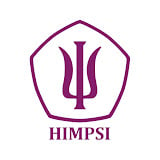A CONCEPTUAL FRAMEWORK FOR EVALUATING THE EFFECTIVENESS OF ROBOTIC GAME APPROACHES TO MOTIVATION AND PERFORMANCE IN GEOGRAPHY
Abstract
Keywords
Full Text:
PDFReferences
Abdul Hamid, A., Mohmadisa, H., Mohd Faris, D., & Muhamad Suhaily, Y.C.N. (2006). Isu-isu Pendidikan Geografi di Malaysia. Tanjong Malim: Penerbit UPSI.
Abdullah, N. Mat Lazim, N.J. Ahmad Zain, R. (2009) Teknologi dalam Pengajaran dan Pembelajaran. Puchong Selangor: Multimedi Sdn. Bhd. ms.1-2.
Adam Hibszer (2011). Perceiving Geography As A School Subject By Pupils Of Lower Secondary School. Prace Instytutu Geografii UJK2011, T. 18, ss. 97–109.
Aishah, A.Z.A., Ruzaini,I., & Siti Asiyah, A. (2011). Attitude (Part 1). http://eprints.utm.my/ 19940/1/001.pdf [16 Ogos 2015].
Arumugam, R. (2006). Effects of Animated and Interactive Maps in Geography Teaching and Learning. UUM Thesis.
Breschi,S. (2000) The Geography of Innovation: A Cross-sector Analysis, Regional Studies, 34:3, 213-229, DOI: 10.1080/00343400050015069.
Cantwell, J,. & Iammarino, S. (2001). The technological relationships between indigenous firms and foreign-owned MNCs in the European regions.
Csiksmihalyi, M (1991),Flow: The Psychology Of Optimal Experience . New York : Harper Perennial.
Curriculum Development Division (2018). Malaysia Education Ministry.
Douglas C. Williams, Yuxin Ma, Louise Prejean, Mary Jae Ford & Gobinds Lai. (2007). Acquisition of Physics Content Knowledge and Scientific Inquiry Skills in a Robotics Summer Camp. Journal of Research on Technology in EducationVolume 40, 2007 - Issue 2.
Fatin, A,. Hafzan, I,. Mohamad Bilal, A,. Norazrena, A. S,. & Phang, A. (2015) .Using Robotics as Tools in Teaching and Learning Science, Technology, Engineering and Mathematics. UTM publisher.
Furdu, I., Tomozei, C. & Kose, U. (2017). Pros and Cons Gamification and Gaming in Classroom. BRAIN. Broad Research in Artificial Intelligence and Neuroscience, 8(2): 56-62. Retrieved from https: //www.edusoft/brain/index/article/view.
Hakan.T,Meryem Y-S, Türkan.K,Yavuz. İ,Gonca.K (2009). The effects of computer games on primary school students’ achievement and motivation in geography learning. Computers & Education Volume 52, Issue 1, January 2009, Pages 68-77.
Hamari, J., Koivisto, J. & Sarsa, H. 2014. Does gamification work? - A literature review of empirical studies on gamification. Proceedings of the Annual Hawaii International Conference on System Sciences, hlm. 3025–3034. doi:10.1109/HICSS.2014.377.
Hanifah, M,. Nasir, N,. Paulin, L,. Yazid, S,. & Zalina, H. (2017) Student Achievement in Secondary School Geography Subjects in Sabah - Preliminary Analysis .JOURNAL Human Science.
Huotari, K. & Hamari, J. 2012. Defining Gamification - A Service Marketing Perspective. Proceeding of the 16th International Academic MindTrek Conference on - MindTrek ’12, (October), 17. doi:10.1145/2393132.2393137.
Judith Challinger (2005). Efficient Use Of Robots In The Undergraduate Curriculum. SIGCSE '05: Proceedings of the 36th SIGCSE technical symposium on Computer science educationFebruary 2005 Pages 436–440https://doi.org/10.1145/1047344.1047486
Khairuddin, N,. Che Zalina, Z,. & Norhisham, M. N. (2017). Geographic Learning Design Design Based on Geoplay Games.Geography Vol. (5), No. (1), (2017), 46-61. Publisher of Sultan Idris University of Education.
Khaleel, F. L., Sahari@Ashaari, N., Tengku Wook, T. S. M. & Ismail, A. 2016. Gamification Elements for Learning Applications. International Journal on Advanced Science, Engineering and Information Technology, 6 (6): 868-874. doi:10.18517/ijaseit.6.6.1379.
Lazarro, Nicole. (2004). "Why we play games: Four keys to more emotion without story." Game developer’s conference, San Jose..
Milson, Andrew J., and Brian D. Earle. "Internet-based GIS in an inductive learning environment: A case study of ninth-grade geography students." Journal of geography 106.6 (2008): 227-237.
Mohammad Zohir, A. (2016) .Education Geography in Malaysian Schools: Development and Issues of Geography Vol. (4), No. (1) (2016), 1-10 Publisher of Sultan Idris University of Education.
Mohammed, N. (2014). Some Issues On Gender And The Teaching Of Geography In Secondary Schools In Kano State,Nigeria. American Journal of Humanities and Social Sciences. 2. 10.11634/232907811503496.
Muhamad Shakir, S,. (2018). The Effectiveness of Robot Game Learning Process over Achievement, Effective Communication and Student Motivation of Cell Response Topics. UMS Thesis.
Muhamad Shakir, S., Sabariah S., & Muralindran M., ( 2018). Effectiveness Of Robotic Gaming Towards Students Motivation For Respiration Topic. International Journal of Education, Psychology and Counseling, 3(8), 1-12
Muhammad Ali Yousuf (2009). Robots in Education. Publisher Of Timely Knowledge.
Natalia Reich- Steibert & Friederike Eyssel (2015). Learning with Educational Companion Robots? Toward Attitudes on Education Robots, Predictors of Attitudes, and Application Potentials for Education Robots. International Journal of Social Robotics volume 7, pages875–888.
Nienke Vos, Hennyvan der Meijden & Eddie Denessen (2011). Effects of constructing versus playing an educational game on student motivation and deep learning strategy use. Computers & Education Volume 56, Issue 1, January 2011, Pages 127-137.
Nurhuda, A., & Fariza, K. (2017). Kesan Gamifikasi dalam Pendidikan Mempengaruhi Tahap Motivasi dan Penglibatan Pelajar. In M. R. Rohaila, R. Nabila Atika, & J. Nur Atikah (Ed.), Pembelajaran Abad ke-21: Trend Integrasi Teknologi (Pp. 157–163). Bangi: Fakulti Pendidikan UKM.
Seymour Papert (1993). The children's machine. Rethinking school in the age of the computer. Published by BasicBooks, A Member of the Perseus Books Group. Ney York.
Siti Norhaida, A. R. (2017). A Gamification Approach in Teaching and Learning in Secondary Education for Algebraic Expression Topics. UTHO Thesis.
Siti Rohani binti Jasni, Suhaila binti Zailani& Hakim bin Zainal (2018). Gamification Approach In Learning Arabic Language. Journal of Fatwa Management and Research | Jurnal Pengurusan dan Penyelidikan Fatwa |مجلة إدارة وبحوث الفتاوىSeFPIA 2018 | SPECIAL EDITION.
Soon Singh, B. S,. Kleeman,G,. & Bergen, P, V. (2013). A Conceptual Framework for Assessing the Impacts of GIS on the Motivation and Achievement in Geography Among Underachieving Students of Smart School in Sabah, Malaysia.US-China Education Review A, ISSN 2161-623X.Vol. 3, No. 2, 100-107.
Tan, W.H (2018). Gamification in Education - Game Based Learning. Publisher of Sultan Idris University of Education.
Yoon, B., Rodriguez, L., Faselis, C. J. & Liappis, A. P. (2014). Using a board game to reinforce learning. Journal of continuing education in nursing, 45(3): 110–111. doi:10.3928/00220124-20140224-14
DOI: http://dx.doi.org/10.22441/biopsikososial.v6i1.15880
Refbacks
- There are currently no refbacks.
Copyright (c) 2022 Biopsikososial: Jurnal Ilmiah Psikologi Fakultas Psikologi Universitas Mercubuana Jakarta
JBUMBand its articles is licensed under a Creative Commons Attribution-ShareAlike 4.0 International License.
Tim Editorial Office
JBUMB
Fakultas Psikologi, Universitas Mercu Buana
Jalan Meruya Selatan No. 1, Kembangan, Jakarta Barat, 11650, Indonesia
Phone: +6281318855243
Email: [email protected]
Website: https://publikasi.mercubuana.ac.id/index.php/biopsikososial/index

















